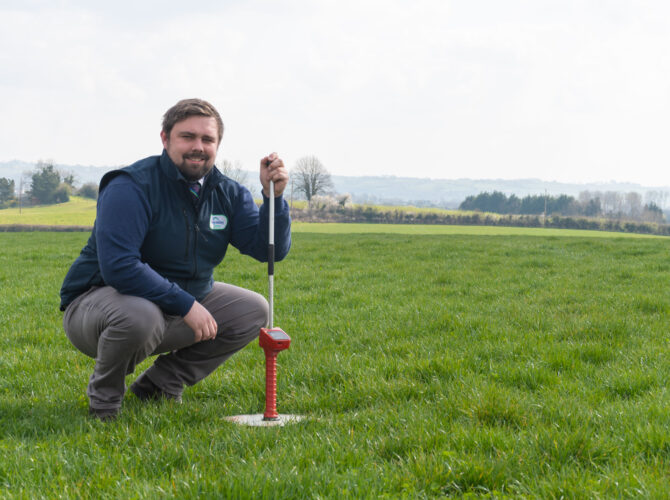Reseeding and Repairing Damaged Swards.
24th April 2024

The constant wet weather since last autumn caused some fields to be damaged. To maximise productivity these fields should be repaired to prevent a loss in productivity or weeds encroaching in the open areas. Paddocks should be assessed now to decide what action should take place to bring the field back to full production.
Fane Valley’s forage improvement programme includes the scoring of grasslands to assess the level of desired species, density, and presence of weeds. The soil is also assessed for fertility and soil structure to determine the limiting factors for grassland production in fields and use the information to develop a plan to improve performance.
A field should be considered for a full reseed if there is less than 50% perennial rye grass. Rye grass can be identified by the reddish colour to the stem base. Ideally a sward should have over 70% ryegrass and if lower than this over seeding could be considered to prolong the life of the sward. Before reseeding however, it is important to correct any issues which may prevent it from succeeding such as soil fertility, drainage, or structure.
Swards which have been badly poached my need to be ploughed and fully reseeded however swards which have not been severely damaged could benefit from rolling and overseeding when conditions allow to thicken the sward and fill the damaged areas without taking the field out of production for long.
After reseeding it important to manage the sward well to ensure it gets off to the best start. This includes weed control around 4 weeks after sowing, at this stage the weeds are still young and are more susceptible to the herbicide. Please speak to a BASIS qualified advisor such as a member of the Fane Valley Agronomy & Forage team to ensure you are using the right product to control the weeds in your field. It is best practice to graze the reseeded field first rather than take a cut of silage to encourage the plants to tiller. This first grazing should be a light grazing and take place as soon as the grass passes the pluck test, this test is when you pinch the grass at the base between two fingers and the grass breaks rather than be pulled out by the roots.
To find out more about the forage improvement programme or reseeding please contact your Fane Valley agronomist or call 02892610485.

